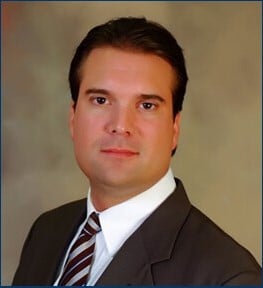
The behavior of individuals who develop dementia as they grow older can create a significant amount of disruption between them and those who must take care of them. According to the Alzheimer’s Association, dementia is not a specific disease. It is an overall term that describes a range of symptoms. The general decline in thinking skills, memory, and a person’s ability to handle the activities of daily living, are often erroneously referred to as senility. However, if at least two of the following core mental functions are significantly impaired the condition could be considered to be dementia:
- Memory
- Communication and language
- Ability to focus and pay attention
- Reasoning and judgement
- Visual perception
Individuals who have advanced symptoms of the disease can become difficult to manage, and this can create a challenge for those who live in nursing homes which are short-staffed. To combat this, some facilities have resorted to using medications as a form of chemical restraint to manage the often troublesome behavior of their residents with advanced dementia. The use of chemical restraints can be a problem because the powerful drugs that nursing homes use can have many nasty side-effects, including death. But federal law states that “The resident [of a nursing home] has the right to be free from any physical or chemical restraints imposed for purposes of discipline or convenience, and not required to treat the resident’s medical symptoms.”
People are starting to take notice
Around the country, we are seeing an increase of news stories about this type of nursing home abuse:
- A study published in the Annals of Long-term Care reports that although the medications can be effective, clinical evidence and other research suggests the proper course is to wean residents with advanced dementia off of anti-psychotic medications.
- National Public Radio also did a story on the topic of overmedicating elders in nursing homes called, Old And Overmedicated: The Real Drug Problem In Nursing Homes. The story touches on the issue of anti-psychotic drugs, which were approved to treat mental illnesses such as schizophrenia and bipolar disorder, but which are being used to manage patient behavior in nursing facilities despite black box warnings from the FDA. Antipsychotic drugs can increase the risks of heart failure, infections and death in the elderly with dementia.
- According to the Centers for Medicare and Medicaid Services (CMS), more than 17 percent of nursing home residents receive antipsychotic medications that exceed the recommended daily dose.
- A report released by the Government Accountability Office (GAO) states that a person with dementia who lives in a nursing home has about a 1 in 3 change of receiving antipsychotic drugs. Bradley Williams, a geriatric pharmacist said, “They blunt behaviors. They can cause sedation. It increases a patient’s risk for falls.” The most widely used drugs include Risperdal, Seroquel and Zyprexa. Medicare is paying for these drugs which are un-prescribed and unnecessary.
Steps are being taken to end the problem. CMS has launched a campaign to reduce the use of antipsychotic drugs in nursing homes, however, the GAO report said that the government needs to make an effort to curb the use of antipsychotics for patients with dementia who live at home with their families and in assisted living facilities.
If you have a loved one with advanced dementia who lives in a nursing home or in an assisted living facility and you suspect that chemical restraints are being used on them, speak to the nursing director and the facility’s administrator. You might also contact your loved one’s doctor to verify that the dosage is accurate and that they are only being given the medications that they need.
If you have a loved one who has been injured in a nursing home in Mississippi, we want to talk to you. We invite you to contact us at Taylor Jones Taylor to discuss your nursing home abuse case. Please feel free to contact us to set up a free consultation at one of our offices in Hernando, Southaven and Olive Branch, Mississippi.[/fusion_builder_column][/fusion_builder_row][/fusion_builder_container]

Benjamin L. Taylor is a lifelong resident of DeSoto County and has distinguished himself in the area of products liability and personal injury law. He has a reputation as a fierce advocate for his clients and has obtained millions of dollars in verdicts and settlements over his career. He has been listed in the publication Super Lawyers of the Mid-South in the area of product liability. To learn more about Mr. Taylor, please refer to his biography page.




